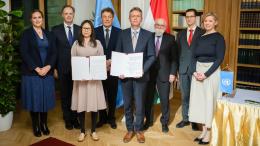During its UN Security Council presidency in July 2020, the Government of Germany convened an open debate on peace operations and human rights, during which several Member States highlighted the need for greater cooperation between military and human rights components in peace operations. In follow up to that debate, Germany hosted a high-level conference on 6 July 2021 in which participants discussed how to improve collaboration between military and human rights components in UN peace operations. The following paper was developed by United Nations University Centre for Policy Research to provide an independent analysis in support of Germany’s high-level event. Specifically, it draws on a range of interviews and consultations with leadership and staff in the UN missions in South Sudan and Mali (UNMISS and MINUSMA, respectively) and experts across the UN system to identify: (1) current challenges confronting human rights and military components in volatile settings; (2) good practices and innovations in South Sudan and Mali; and (3) lessons and recommendations for enhancing cooperation going forward.
The paper illustrates where UNMISS and MINUSMA have developed good practices that have facilitated closer coordination/cooperation and even integration of military peacekeepers and human rights officers. It maps the challenges, good practices and lessons learned for greater coherence between human rights and military components in UN peace operations.



